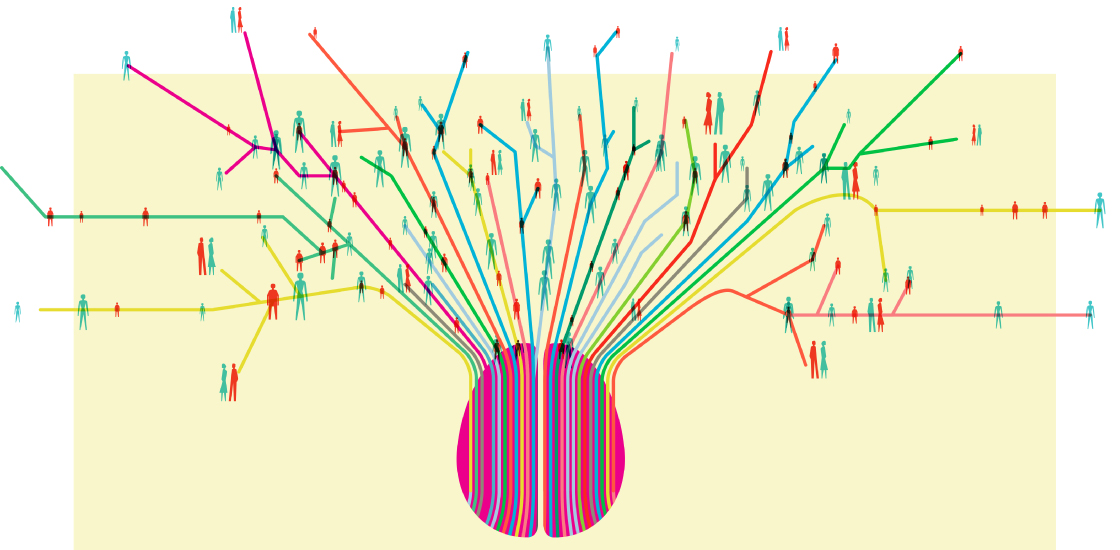Stephan J. Sanders
Assistant professor
University of California, San Francisco
From this contributor
Family groups play key role in advancing autism research
Families need more support from researchers in order for their heroic efforts to be optimally effective.

Family groups play key role in advancing autism research
In search of factors that shield girls against autism
Identifying the factors that protect girls from autism may help us understand and possibly treat the disorder.

In search of factors that shield girls against autism
Explore more from The Transmitter
Three ecological psychologists on the right and wrong ways to use the field’s principles in neuroscience
Matthieu de Wit, Luis H. Favela and Vicente Raja weigh in on the recent trend of neuroscientists importing concepts from ecological psychology, the study of how an organism’s interactions with its environment explain perception and action.
Three ecological psychologists on the right and wrong ways to use the field’s principles in neuroscience
Matthieu de Wit, Luis H. Favela and Vicente Raja weigh in on the recent trend of neuroscientists importing concepts from ecological psychology, the study of how an organism’s interactions with its environment explain perception and action.
Is there a neuroscientist in the House?
Sam Wang, a neuroscientist running for the U.S. House of Representatives, has been considering American democracy for decades.

Is there a neuroscientist in the House?
Sam Wang, a neuroscientist running for the U.S. House of Representatives, has been considering American democracy for decades.
Marcelle Lapicque: A forgotten pioneer in neuroscience
Lapicque was the first Black woman neuroscientist in Europe, new research suggests.
Marcelle Lapicque: A forgotten pioneer in neuroscience
Lapicque was the first Black woman neuroscientist in Europe, new research suggests.